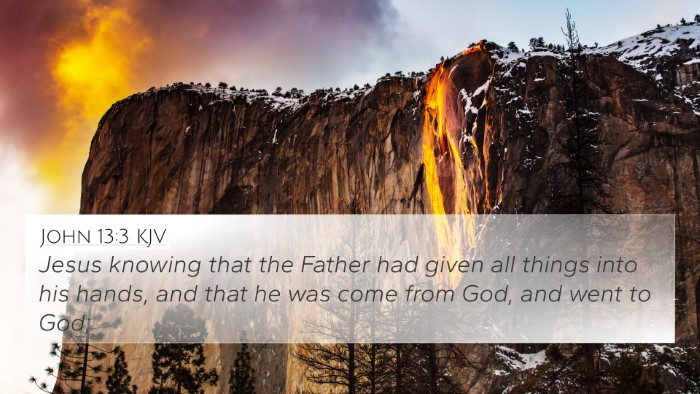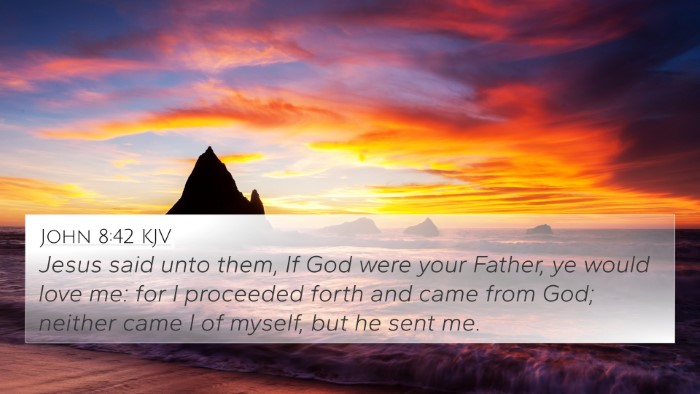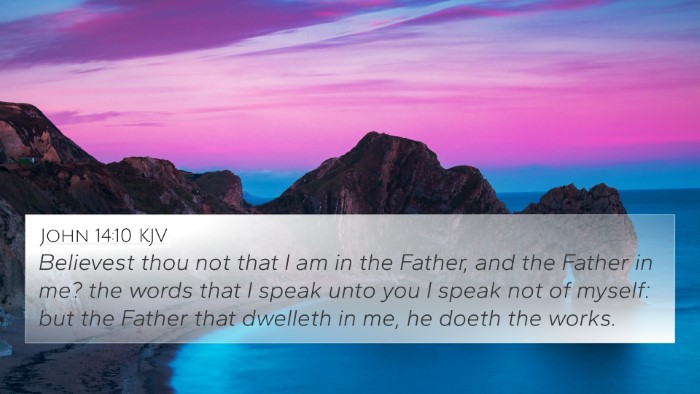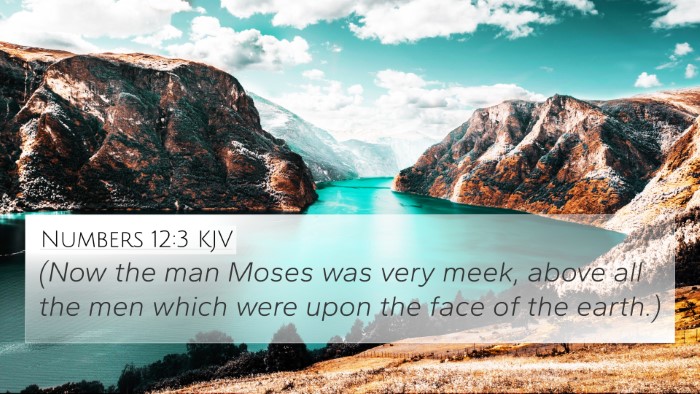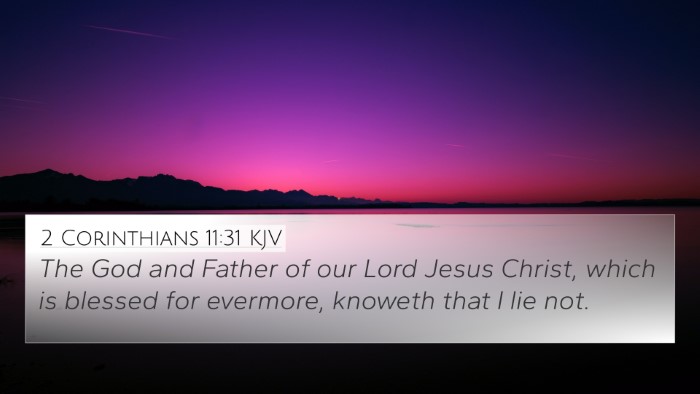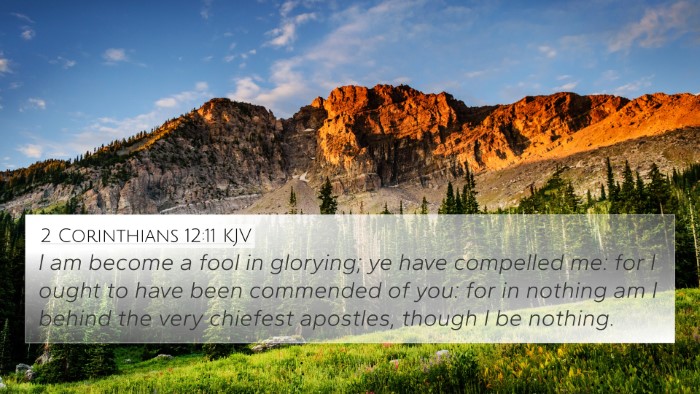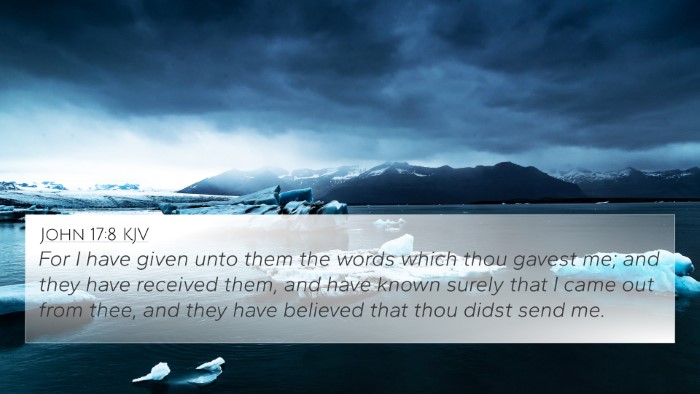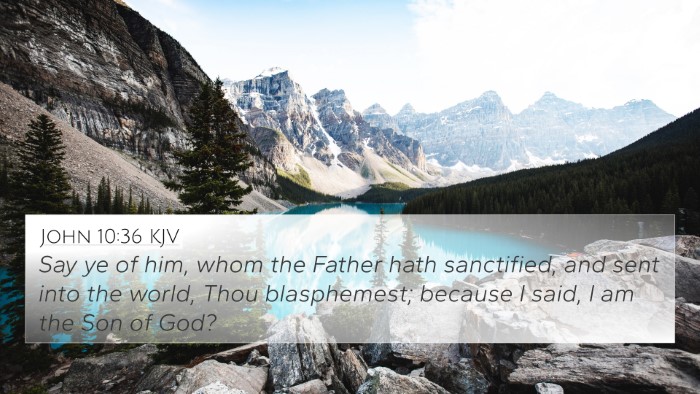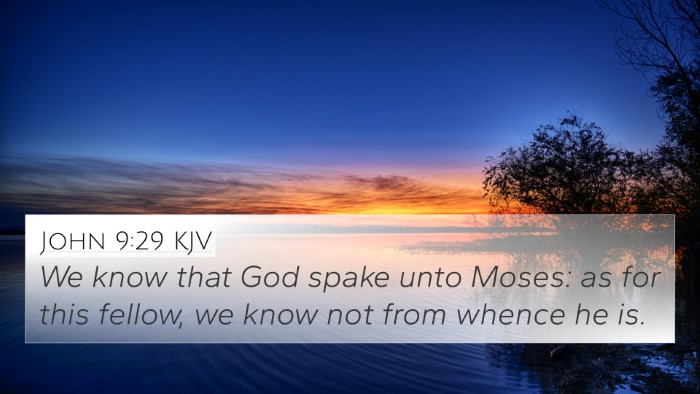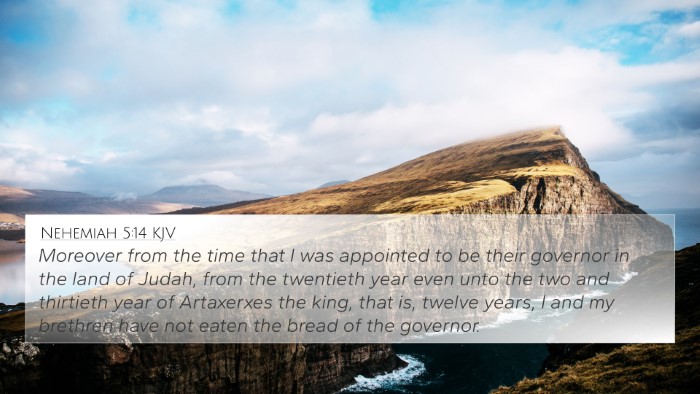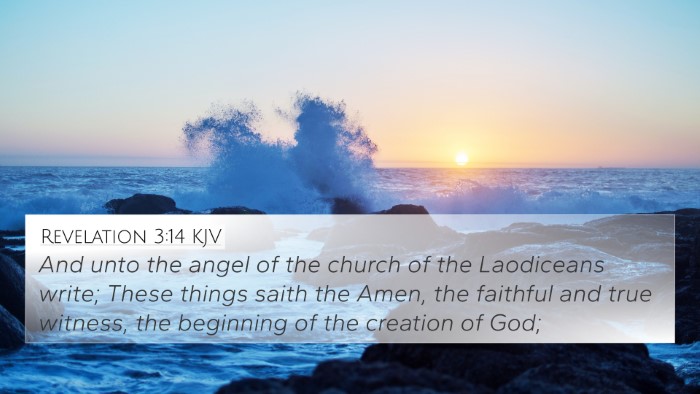Understanding John 8:14
The verse John 8:14 states: "Jesus answered and said to them, 'Even if I bear witness of Myself, My witness is true; for I know where I came from and where I am going; but you do not know where I come from and where I am going.'" This profound statement encapsulates Jesus' dual truths of divine origin and authority, which are integral to Christian theology.
Overview of John 8:14
This verse emerges in the midst of a heated dialogue between Jesus and the Jewish leaders, addressing the authenticity of His claims about Himself. The primary focus is on the nature of Jesus' testimony concerning Himself, which emphasizes His unique divine authority.
Exegesis and Commentary
Matthew Henry’s Commentary: Matthew Henry remarks that the self-witness of Jesus is not only valid but inherently true due to His divine nature. He emphasizes that Jesus' awareness of His origin and destiny stands in stark contrast to the ignorance of His opponents, reflecting the broader theme of spiritual enlightenment versus darkness found throughout the Gospel of John.
Albert Barnes’ Notes: Albert Barnes elaborates on the idea of self-witness in relation to Jewish law. He contrasts this with the practice in Jewish courts, where the testimony of multiple witnesses was required. Jesus asserts that His knowledge of His origin and mission gives life to His singular testimony, highlighting His divine insight.
Adam Clarke’s Commentary: Adam Clarke interprets this verse as a declaration of Jesus' omniscience and authority, rooted in His divine identity. Clarke notes how Jesus establishes His credibility by asserting knowledge that goes beyond human understanding, relating to both His pre-existence and His redemptive purpose.
Bible Verse Cross-References
- John 3:11-12: "We speak what we know and testify to what we have seen, and you do not receive our testimony." This underscores the theme of believed versus unrecognized truth.
- John 1:18: "No one has seen God at any time. The only begotten Son, who is in the bosom of the Father, He has declared Him." Here, Jesus is described as the ultimate revealer of God, a clear reflection of His self-testimony in John 8:14.
- John 7:29: "But I know Him, for I am from Him, and He sent Me." This verse also emphasizes Jesus’ unique knowledge of His divine origin.
- John 8:12: "I am the light of the world. He who follows Me shall not walk in darkness, but have the light of life." The illumination aspect of Jesus' testimony is linked directly to His identity as the light.
- Matthew 12:36-37: Jesus speaks about the significance of words and testimony, further reinforcing the weight of His own claims.
- Hebrews 1:3: "who being the brightness of His glory and the express image of His person." This relates to the concept of Jesus as a true representation of God's nature and authority.
- Colossians 1:16-17: These verses discuss Jesus’ preeminence over all creation, reflecting His existence before His earthly ministry began, aligning with His statement of knowing where He came from.
Inter-Biblical Dialogue
Connecting John 8:14 with Old Testament prophecies and teachings enhances the understanding of Jesus' identity. Consider linking the following thematic references:
- Isaiah 9:6: Describes the Messiah as "Wonderful Counselor, Mighty God, Everlasting Father, Prince of Peace."
- Isaiah 53:4-5: Foretells the suffering servant role that Jesus embraces, thereby deepening the significance of His self-awareness in John 8:14.
Thematic Connections with Other Scriptures
John 8:14 can also be viewed through the lens of thematic Bible verse connections:
- The concept of 'light': John 8:12 and 1 John 1:5 establish a consistent theme of Jesus as the embodiment of light in a world overshadowed by darkness.
- Spiritual blindness: The contrast in understanding between Jesus and the Jewish leaders reflects the greater message found in Romans 1:18-21 about mankind's tendency to reject the truth.
- Divine authority: Hebrews 5:5 discusses the divine appointment of Jesus, paralleling His claims of authority in John 8:14.
Tools for Bible Cross-Referencing
For effective Bible study, utilize various tools such as:
- Bible concordance: Helps locate specific verses and their connections.
- Bible cross-reference guide: Offers direct links between related scripture for deeper understanding.
- Cross-reference Bible study methods: Structured approaches can enhance comprehension of thematic links.
Conclusion
John 8:14 is a critical verse that encapsulates the divine identity of Jesus Christ and His authority to bear witness to the truth. By cross-referencing this verse with others throughout the Bible, believers can gain deeper insights into the nature of Christ's mission and the implications of His teachings. Understanding these connections encourages a richer engagement with scripture and nurtures spiritual growth.




